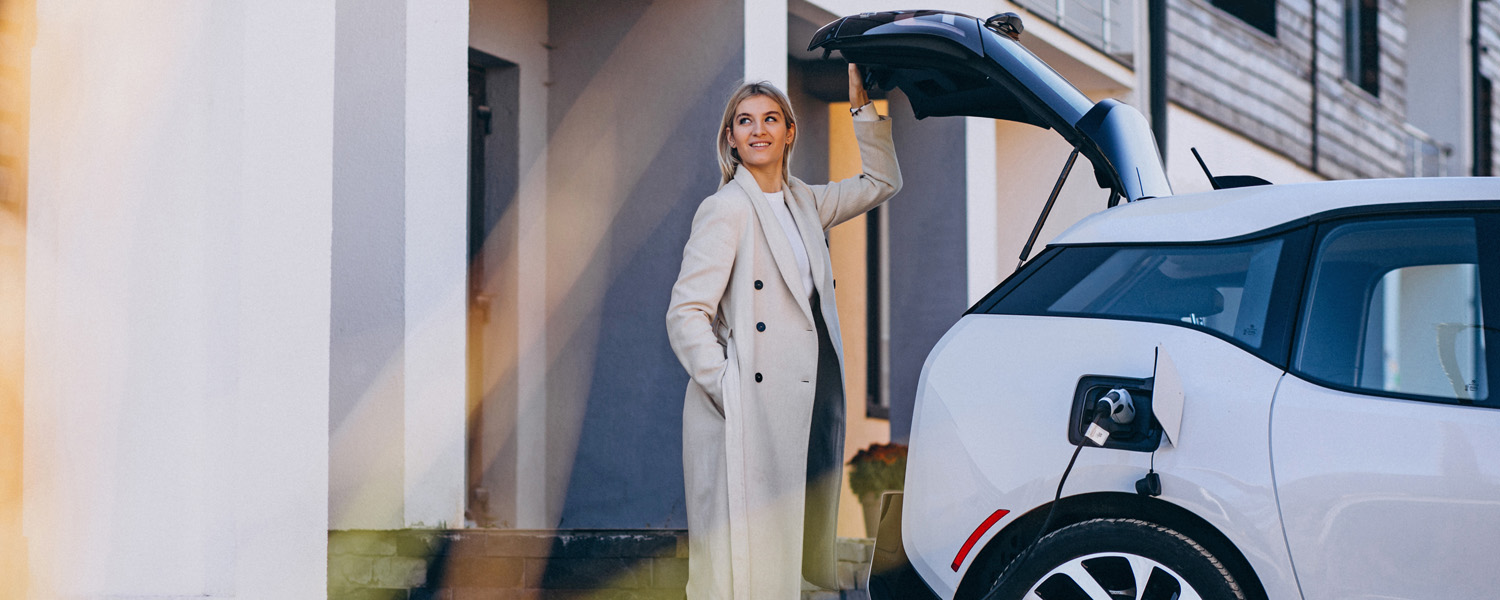How to salary sacrifice a lease car?

Why your business should consider a Salary Sacrifice Scheme for your employees.
Salary sacrifice is a tried and tested method of delivering a non-cash employee benefit in a tax efficient way. In return for being provided a benefit by their employer, the employee gives up some of their salary to pay towards the cost of the benefit. It’s fairly standard employer practice for tax-advantageous benefits such as child-care vouchers and the cycle to work scheme. However, for electric cars salary sacrifice may be slightly different.
Our Salary Sacrifice Scheme is provided by our Parent company Fleet Alliance - the largest business lease broker in the UK.
How Does Salary Sacrifice Work?
An employee can effectively lease a brand new electric car without having to pay any deposit or concern themselves about extending their personal credit lines. The costs of all maintenance, Road Tax, insurance, and breakdown cover is included within the salary sacrifice. Rental terms can be two, three or four years, but due to potential changes in personal circumstances we would suggest rental contracts are limited to three years.
Salary sacrifice is most effective when an employee chooses an electric vehicle (EV) because the BIK rate is just 2% until 2025, rising by only 1% each year thereafter through to 2028. This can result in huge savings for employees.
The electric vehicle is leased by the employee’s company, with the cost being deducted from the employee’s gross salary. The employee then pays tax and NIC based on the revised salary, thus reducing the amount of income tax and NIC they pay.
Since the tax and NIC saved on the salary sacrificed significantly outweighs the company car tax (BIK) paid for the vehicle, the net effect is the employee pays a great deal less for their car than if they had leased it privately from their taxed income.
For the employer, there is the saving realised from the reduced Class 1 NIC payable on the employee’s salary, although a nominal Class 1A NIC charge is payable, as it would be with a traditional company car.
The other benefits are those that come with EVs - namely zero emissions, reduced running costs and alignment with the Government’s Ten Point Plan for a Green Industrial Revolution, which includes the phasing out of petrol and diesel vehicles by 2030.
Why has Salary Sacrifice become so popular?
It’s because of the change to the BIK tax rules around electric vehicles (EVs). Salary sacrifice makes most sense for zero emission electric cars because company car users choosing such a vehicle are taxed at the very lowest rates - as we can see in the table below - and fall outside OpRA regulations.
Company Car Taxation Bands for EVs
| Tax Year | % Tax Band |
|---|---|
| 2023-2024 | 2% |
| 2024 - 2025 | 2% |
| 2025 - 2026 | 3% |
| 2026 - 2027 | 4% |
| 2027-2028 | 5% |
Next Steps towards an EV with Salary Sacrifice
A salary sacrifice scheme offers an excellent opportunity to reduce your company’s carbon footprint and provide drivers with vehicles at minimal BIK impact.
If you would like to understand how it affects your company cars, what the best method of transition would be, then book a consultation with a Fleet Alliance salary sacrifice specialist. Our team can provide a full review of your fleet or vehicle needs and analyse the best solution for you or your business.
FAQs on Salary Sacrifice
-
First, you need to consider what employees are eligible to take part, we would then credit check your business and after ensuring you have a sufficient credit line we would provide you with the UK's most competitive leasing rates (sourcing you the best rentals from our panel of funders). We would then package everything into your tailored salary sacrifice scheme.
-
There may be some marginal gains in certain circumstances for doing this, but as the real benefit to both employer and employee is in the low taxation treatment of EVs, these can be realised by merely advising company car drivers to choose an electric company car at their next renewal.
-
Drivers that opted out of the company car should be re-considering how they finance their next car because the taxation levers that led them into the cash opt out have now changed. In particular, a move into an ultra low-emission or zero-emission company car is the recommended way forward in most cases.
-
Small company owner-directors, who are paid using a combination of minimal salary and dividends, may not be able to take full advantage of the taxation benefits of salary sacrifice. However, small business owners and directors paid predominantly via salary should be able to enjoy the same tax and NIC benefits offered to their employees.
-
This is an option you may want to consider, as it enhances the value of your workforce’s salary without it impacting your bottom line. The tax and NIC savings available will effectively increase your employee’s buying power and you’ll benefit from the NIC savings available.

